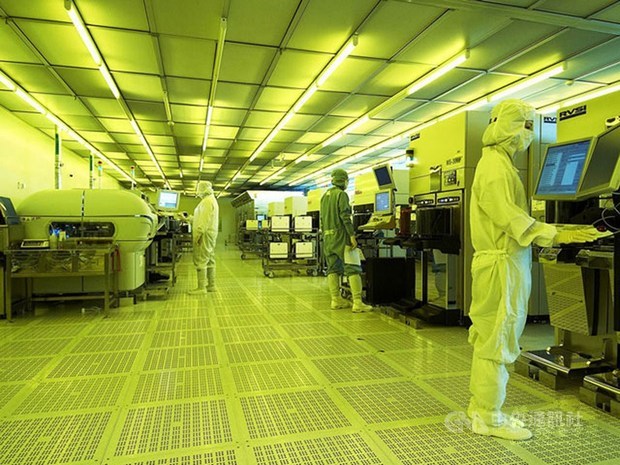
Taipei, Feb. 28 (CNA) Taiwan's major industries may see interruptions in their supply chains as the pace at which factories in China reopen remains slow due to the novel coronavirus (COVID-19) outbreak, economists said Friday.
Wang Jiann-chyuan, vice president of the Chung-Hua Institution for Economic Research (CIER), said China is a global manufacturing hub and many industries in Taiwan heavily depend on supplies of raw materials from Chinese makers.
A large number of Chinese factories resumed operations after the Lunar New Year holiday, which ended on Feb. 10, but the lockdowns of many cities by Chinese health authorities to contain the outbreak has prevented Chinese workers from returning to their workplaces.
That has led to disruptions in raw material supplies from China to Taiwan, which could hurt many industries in Taiwan, such as the semiconductor, information and communications technology (ICT), biotech and flat panel sectors.
Earlier this month, the Chinese National Federation of Industries (CNFI), one of the most important business groups in Taiwan, warned that the electronics sector has been severely affected by the lockdowns of major Chinese cities.
The business group said many Taiwanese electronic component makers have built manufacturing clusters in Hubei and Guangdong, the two provinces hit hardest by the epidemic, and restrictions on the movement of people there are the last thing tech companies want to see.
At the same time, Wang said, demand in China's sizable economy has also been affected by the novel coronavirus.
On Feb. 23, the International Monetary Fund lowered its forecast for China's gross domestic product (GDP) growth in 2020 to 5.6 percent, down 0.4 percentage points from an earlier estimate in January.
With China the largest buyer of Taiwan-made goods, accounting for about 40 percent of Taiwan's exports, weaker demand will likely hurt Taiwanese producers of petrochemicals, machinery, plastics and base metals, Wang said.
Private consumption is also being hurt simply by fears among consumers of leaving their homes, Wang said, pointing to a government forecast that retail and food/beverage sales in February will fall by NT$12.5 billion (US$413 million) and NT$6.1 billion, respectively, from a year earlier.
Under such circumstances, the local transportation and tourism industries are also likely to suffer, he said.
Other economists were less pessimistic over Taiwan's economy despite the global contagion.
Among them, Dachrahn Wu, director of the Research Center for Taiwan Economic Development of National Central University (NCU) said the slow pace at which factories were reopening in China and the spike in confirmed cases in South Korea could lead foreign buyers to place more orders with producers in Taiwan.
He also cited pledges by many Taiwanese companies operating overseas to invest more in Taiwan, made originally by producers seeking to avoid the punitive tariffs imposed by the United States on goods produced in China.